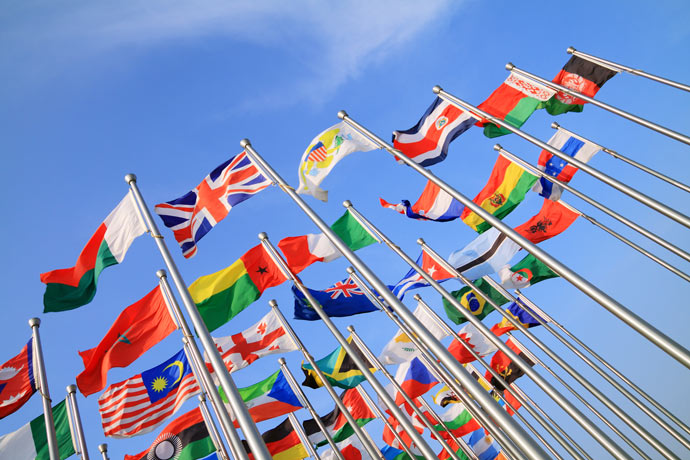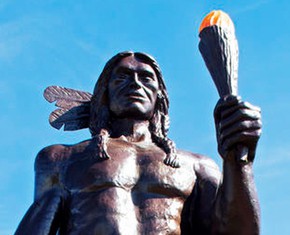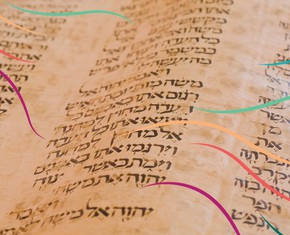The views expressed in our content reflect individual perspectives and do not represent the authoritative views of the Baha'i Faith.
This series of articles about Baha’is and theocracy had its genesis in a question from a reader on Common Ground, a website where people of all faiths and no faith come together to discuss the import and impact of religion. The reader asked: “Is the Baha’i Faith a theocracy?” and “In the future, when the Baha’i Faith expands even more than it has already, will it take over the reins of government – and what kind of government would Baha’is build?”
The Baha’i teachings contain a remarkable and unprecedented vision of what a future unified world could look like, how it might operate and what its structure could entail.
These teachings envision a future that couples world unity, harmony and cooperation with the demilitarization of the planet, resulting in a golden age for humanity, a period of love, conciliation and amity Baha’u’llah refers to as the Most Great Peace:
We have enjoined upon all mankind the Most Great Peace — the surest of all means for the protection of humanity. The sovereigns of the world should, with one accord, hold fast thereunto, for this is the supreme instrument that can ensure the security and welfare of all peoples and nations. They, verily, are the manifestations of the power of God and the daysprings of His authority. We beseech the Almighty that He may graciously assist them in that which is conducive to the well-being of their subjects… – Baha’u’llah, The Baha’i World, Vol. II, p. 61.
When Baha’u’llah calls upon the “sovereigns of the world” to establish the world’s great peace, he also asks them to resolve their differences, reduce their armaments, and take counsel together to establish “the reign of justice”:
The tabernacle of unity hath been raised; regard ye not one another as strangers. Ye are the fruits of one tree, and the leaves of one branch. We cherish the hope that the light of justice may shine upon the world and sanctify it from tyranny. If the rulers and kings of the earth, the symbols of the power of God, exalted be His glory, arise and resolve to dedicate themselves to whatever will promote the highest interests of the whole of humanity, the reign of justice will assuredly be established amongst the children of men, and the effulgence of its light will envelop the whole earth. – Gleanings from the Writings of Baha’u’llah, pp. 218-219.
This noble, exalted vision of a unified world, the central pivot of the Baha’i teachings, requires a measure of international cooperation and voluntary diplomacy humanity has not yet achieved. Our contemporary geopolitics, so fraught with competing interests, jealously guarded spheres of influence and selfish nationalistic aims, actively prevents such harmonious international unity. But Baha’is believe that one day it will happen – humanity and its leaders, whether out of necessity or inspiration, will ultimately realize the pressing need for global governance, and will come together to make it a reality.
When that occurs, the Baha’i teachings say, it will begin as political process — the forced cessation of hostilities which represents a “lesser” peace, a basic agreement between the governments of various nations to stop waging war on each other. Baha’is see this as simply the first step in humanity’s progressive journey toward the eventual emergence of a world community, the consciousness of world citizenship, and the founding of a world civilization and culture.
With that long process of human maturation in mind, the Baha’i writings provide a clear and unmistakable message – that the Baha’is, in the words of the Guardian of the Baha’i Faith Shoghi Effendi, cannot advocate or allow a Baha’i theocracy:
Let them proclaim that in whatever country they reside, and however advanced their institutions, or profound their desire to enforce the laws, and apply the principles enunciated by Baha’u’llah, they will, unhesitatingly subordinate the operation of such laws and the application of such principles to the requirement and legal enactments of their respective governments. Theirs is not the purpose, while endeavouring to conduct and perfect the administrative affairs of their Faith to violate, under any circumstances the provisions of their country’s constitution, much less to allow the machinery of their administration to supersede the government of their respective countries. – World Order of Baha’u’llah pp. 65-66.
So the answer to the original question that sparked this series turns out to be a resounding no – the Baha’i Faith, no matter what, cannot “take over the reins of government.” The Baha’i writings clearly and obviously prohibit any usurpation or violation of the political mechanisms or constitutions of governments.
But what could happen if, at some time far in the future, a country decided on its own to adopt the Baha’i administrative order as a model for its own governmental structure? Is that possible?
We’ll continue the discussion in the next installment of this series, when we explore the possibility of the Baha’i administrative order ever becoming a world government.

















Comments
Sign in or create an account
Continue with Googleor